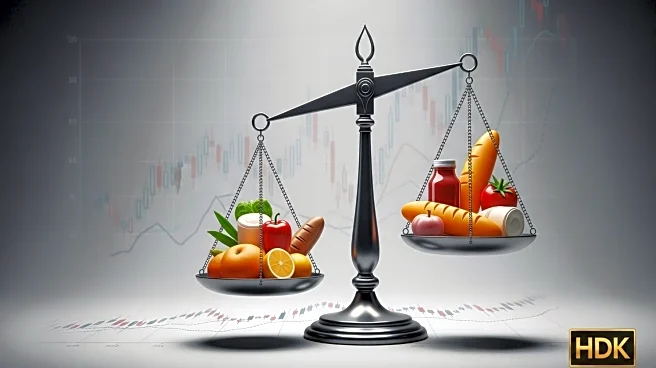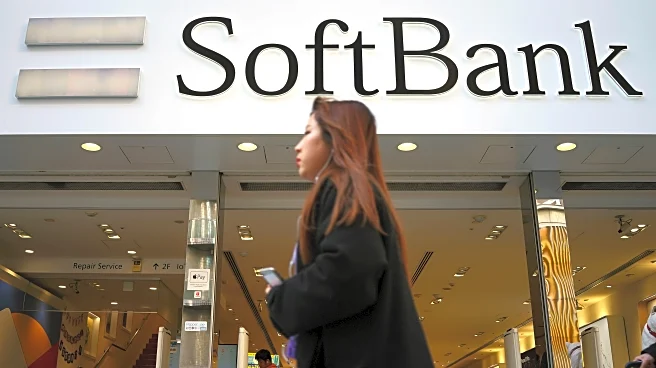What's Happening?
Inflation in the UK has remained at 3.8% for the year to August, with food prices continuing to rise significantly. According to official figures, the cost of food and non-alcoholic drinks increased at an annual rate of 5.1%, driven by higher prices for beef, butter, milk, and chocolate. This marks the fifth consecutive month of rising food price inflation. Economists attribute the increase to supermarkets passing on higher costs from government policies, such as the rise in the minimum wage and National Insurance Contributions, to consumers. Despite the overall inflation rate remaining unchanged from July, the UK is experiencing higher inflation compared to other major European economies like France and Germany. The British Retail Consortium noted that food costs are outpacing average wage growth, which could lead to financial strain for many families.
Why It's Important?
The persistent rise in food prices amidst steady inflation poses significant challenges for UK consumers, particularly as wage growth lags behind. This situation could exacerbate the cost of living crisis, affecting household budgets and consumer spending. The inflationary pressure is largely attributed to domestic policy decisions, highlighting the impact of government actions on economic conditions. The Bank of England faces a complex scenario as it balances inflation control with economic growth, especially with interest rates already cut multiple times. The ongoing inflationary trend could influence future monetary policy decisions, potentially affecting borrowing costs and economic stability.
What's Next?
The Bank of England is expected to hold interest rates steady in its upcoming meeting, with further rate-setting sessions scheduled for November and December. Despite projections of inflation peaking at 4% in September, there is skepticism about further rate cuts this year. Economic analysts suggest that a looser labor market could eventually reduce wage growth and bring inflation down to levels comparable to the US and eurozone. This could allow the Bank of England to lower rates from the current 4% to 3% by the end of next year, providing some relief to consumers and businesses.
Beyond the Headlines
The ongoing inflationary pressures in the UK highlight broader economic challenges, including the impact of domestic policy decisions on consumer prices. The situation underscores the importance of balancing wage growth with inflation control to ensure economic stability. Additionally, the disparity in inflation rates between the UK and other European countries raises questions about the effectiveness of current economic strategies and the need for potential policy adjustments.










